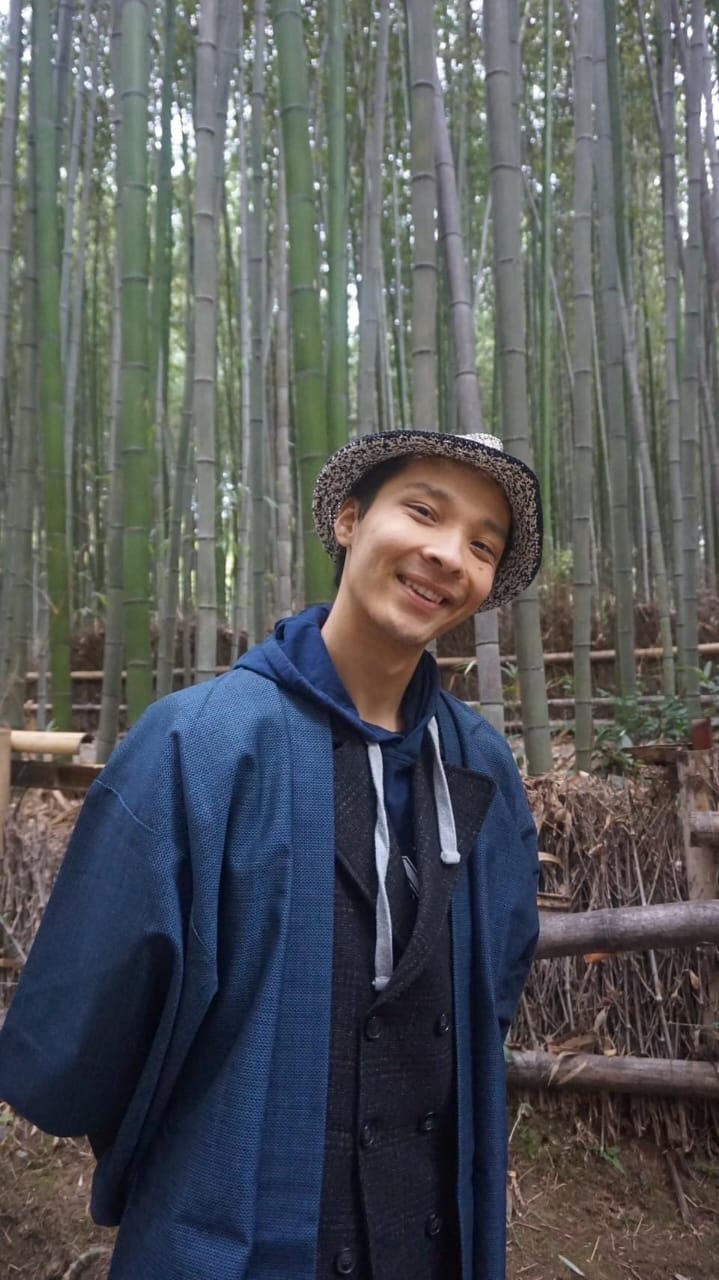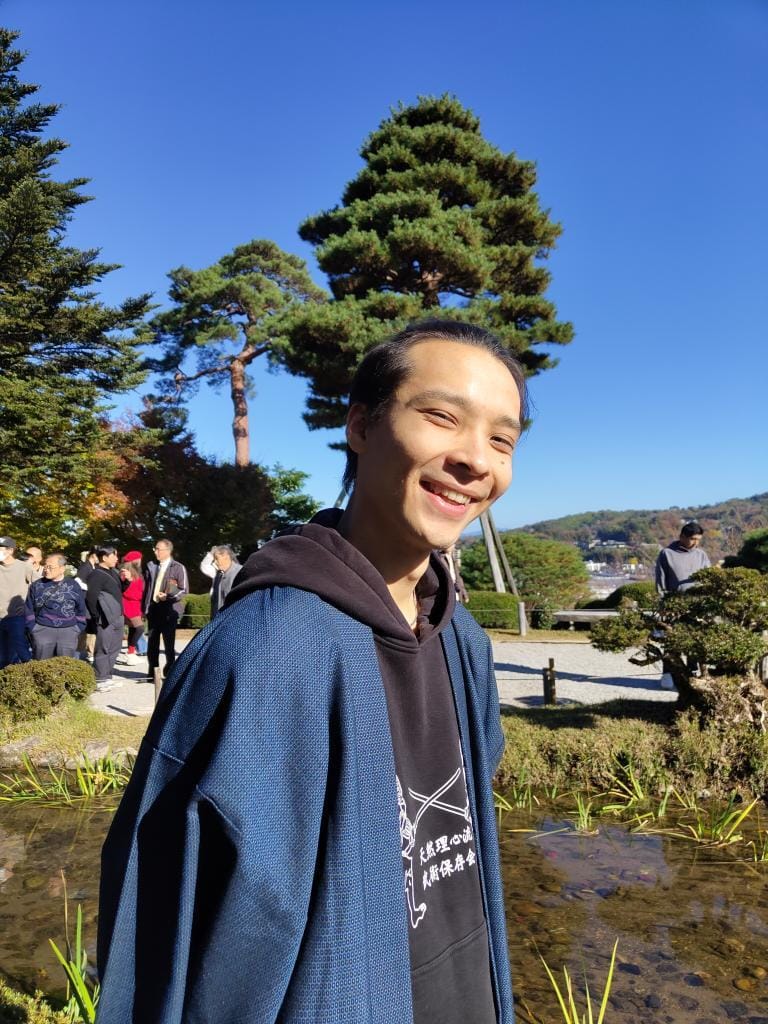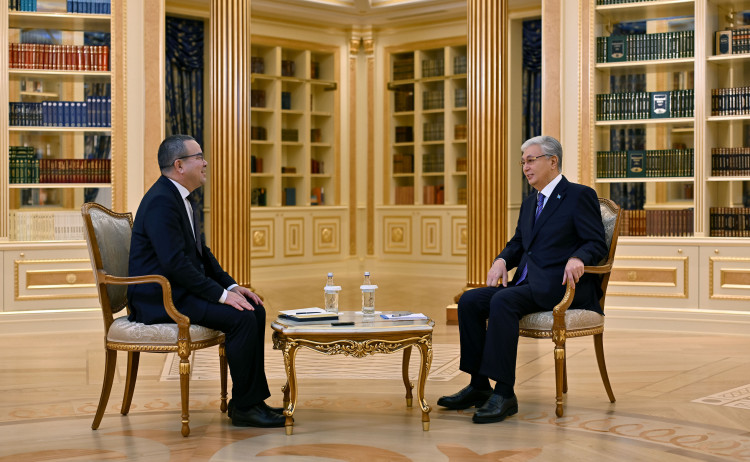
My name is Kazhen Shakhislam Bakytzhanuly, I am a senir student at the Faculty of Oriental Studies, Japanese Language Translation specialty. My programme is called Nikkensei (日研生) and it is sponsored by MEXT. I receive a monthly scholarship of around 380 000 tenge and it includes payment of airport tickets (airport tax is excluded). I have been living and studying in a small city Minoh, north of Osaka since the end of September. The language classes aren’t much different from KazNU, which surprised me. The only big difference I would recall is the fact that you can choose and sign up for classes on your own, whether it's studying modern culture in the form of anime, manga; delving into the history of popularity of "heroes'' of the media; Japanese thought and religion; calligraphy and so on. Nothing limits the students other than a minimum number of classes a week. It's been 2 months and I've noticed how my speaking skills skyrocketed, I'm much more comfortable speaking, and my motivation to learn the language and its culture has noticeably increased. I liked Osaka and the whole Kansai region much better than Tokyo, where I spent 2 weeks in the past. People in Osaka are much more friendly and "warmer", it reminded me a lot of how Almaty and Astana people are different in Kazakhstan. In Osaka there is even a local "Arbat'' - Umeda, full of street performance, youth, tourists, there are historical sights, museums, bars, clubs in walking distance. Quite obviously, most of the interaction is with foreigners who study Japanese as well as me. With Japanese people, as I anticipated, it is a bit difficult to form deep friendly relationships, although I am told that the "ice" can be broken literally after single 飲み会 (meeting in a bar). Japan is very quiet and peaceful. I'm sure many girls will love that you can walk safely on the streets after 19:00. I study at the Minoh campus of Osaka University, and it is a very quiet and peaceful city at any time of the day. I often go outside just to get some fresh air, and I meet at most a couple of people in hours of walking. At the end of March 2024, they promise to complete the train station in front of the campus, which will connect my dorm to the metro and train network. Right now, I have to take a bus and drive 10 minutes to the nearest station. Japan was very different from my expectations. I had read a lot about how Japanese people, especially the older generation, dislike foreigners. I only met one person who indirectly inconvenienced me the entire time. The rest of the time, Japanese people are incredibly happy to see a foreigner who speaks their language and is interested in their culture, be it history, theatre, anime, manga or even idols. My most enjoyable experience was talking to one “grandpa” during a break at training. He was glowing with happiness so much that I didn't even have to translate the conversation to my friends who didn't know a word of Japanese. For them and me, that moment will be remembered for a lifetime. Omiyage culture has touched me deeply. One time I forgot a gift for a friend at an accessory shop in Asakusa. When I returned the next day, the shop assistant told me how she had been looking for me on the streets for almost 2 hours. After a very warm conversation, she gave me 2 stickers and a kite. My package got torn, so they gave me another one and even a box so their jewellery wouldn't get damaged. I always thought bargaining was impossible in Japan until it happened to me by accident. Me and my friends went into a Kendo equipment shop and my friend found a dulled custom designed sword. It was too expensive for him, so I asked: "Do you have something cheaper?" I was understood as saying that the sword was too expensive and that I was asking about a discount. In the end, I managed to reduce the prices of all the items we picked up by 20-35%. Other times, I found a shop that was selling haori and yukata for 100 yen. Just this week, we went to 見学旅行 from the university. Simply put, it's a 2 day trip to historical sites in Japan by bus, with one night in a 旅館 (traditional Japanese hotel). The hotel included dinner and breakfast, so money was only needed for lunch. The whole trip cost about 13,000 tenge, the rest of the money was covered by Osaka University's foreign language office. The guys and I visited figurine museums, the largest Zen Buddhist temple in Japan Eihei-ji (永平寺), Kanazawa castle ruins 金沢城; saw old streets of Kurokabe, one of Japan's "Three Great Gardens of Japan" 兼六園, the largest castle that was not destroyed - Hikone castle 彦根城, and tried traditional Japanese food 和食 at the hotel. The hotel was great, after dinner there was a karaoke night, hot springs and a party in the lobby until midnight. Me and my friends went to the hot springs at 5 and for that we stayed up all night. One of the best experiences in Japan. Overall, my impressions of Japan have been purely positive and I am very excited to be able to study and live here for a year. Some things that Japan is proud of or were hyperbolically described by foreigners seemed overrated to me, things like the 紅葉 (leaffall), Tokyo's complex train system, and Tokyo itself. But those things I feared the most turned completely positive at the end and became reasons why I enjoy every day here.

